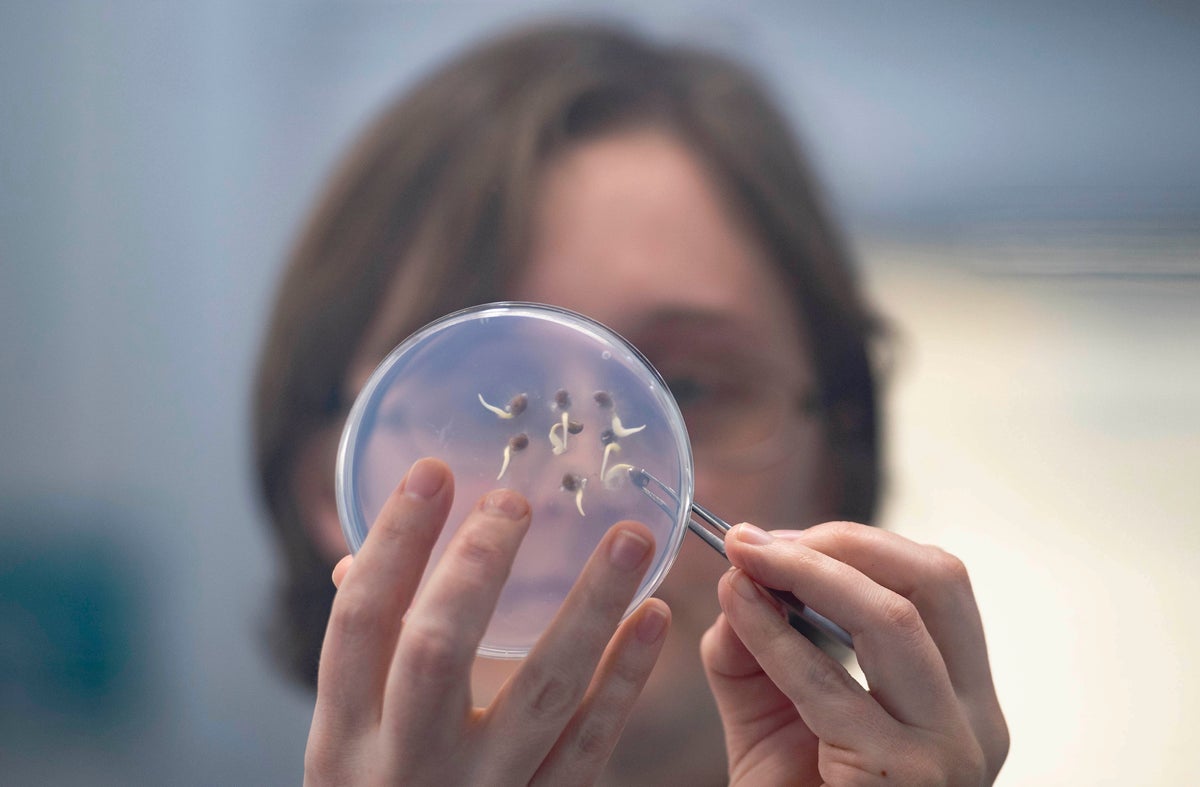
“Our hope is that one day, we do not need to exist,” Dr John Dickie says, his breath forming clouds of condensation in the frigid temperatures of a bomb- and flood-proof underground vault lined with rows of carefully catalogued jars and vials containing billions of seeds.
This is the Millenium Seed Bank (MSB) at the Royal Kew Gardens in Wakehurst, southern England, home to the world’s largest seed conservation project, a “Noah’s Ark” for plants that is “an insurance policy, a hedge against these species becoming ... extinct so that they can be re-established” in the future, Dickie, senior research leader in seed and laboratory-based collections, tells EPA.
The MSB is the largest ex-situ plant conservation project in the world— (EPA)
Unlike other similar conservation projects, such as the Global Seed Vault on Spitsbergen in Norway which focuses on agricultural crops, the MSB is geared towards protecting wild species whose very survival is threatened. “The purpose is the long-term conservation of plant species” for “many tens if not hundreds of years.” By drying and cooling seeds of flowering plants, they can have “extended lives,” Dickie says.
With 98,000 collections of 40,000 different plant species from 190 countries, it is the largest plant conservation project in the world.
Plants grown from seeds in the collection are watered at the glass house of the Kew Millennium Seed Bank— (EPA)
“We have collections from almost all of the 35 biodiversity hotspots [regions with significant levels of biodiversity that are threatened by humans] in the world,” Dickie says.
According to US-based NGO Conservation International, these hotspots “have a high percentage of plant life found nowhere else on the planet” and are therefore “irreplaceable.”
In small postal parcels that belie the importance of what’s inside, seeds are sent to Kew Gardens from the four corners of the globe, before they are cleaned and processed in the lab to protect them from disease and facilitate storage.
Seed are weighed ahead of storage— (EPA)
The bank of 2.4 billion seeds are acting as an insurance policy to stop the worlds plant species becoming extinct— (EPA)
Seeds are X-rayed for viability— (EPA)
“We separate the wheat from the chaff,” Dickie says, before the seeds are tested, re-dried, packaged and stored at -20C.
To ensure the collection remains viable, a sub-sample of seeds are germinated in laboratories every 10 years, which both tests their long-term viability and informs future users of the best conditions to germinate the seeds.
But the team at Kew is not only concerned about conserving and protecting species for the future. It also provides seeds to researchers, breeders and conservationists which they can then “multiply and [...] establish in the field,” as the aim is both “long-term survival and enabling current use,” Dickie says.
A seed casing is dissected ahead of storage— (EPA)
An example of a legume pod— (EPA)
One of the ways the bank can do that is by convincing local communities that collect their seeds “directly from the wild” to work with conservation projects like Kew Gardens.
“If we can get our collections used, and we can engage those local communities, (we can) bring those wild species into cultivation, and they can make a living out of them,” Dickie says, calling the arrangement “a win-win” that would also mean that wild plant populations are preserved.
While “the hope is that there would be no need for seed banks in time because the environmental change and biodiversity loss had been stabilized and reversed,” Dickie acknowledges that that scenario is still “a while” away. “There is life in front of seed banks for now.”
EPA







